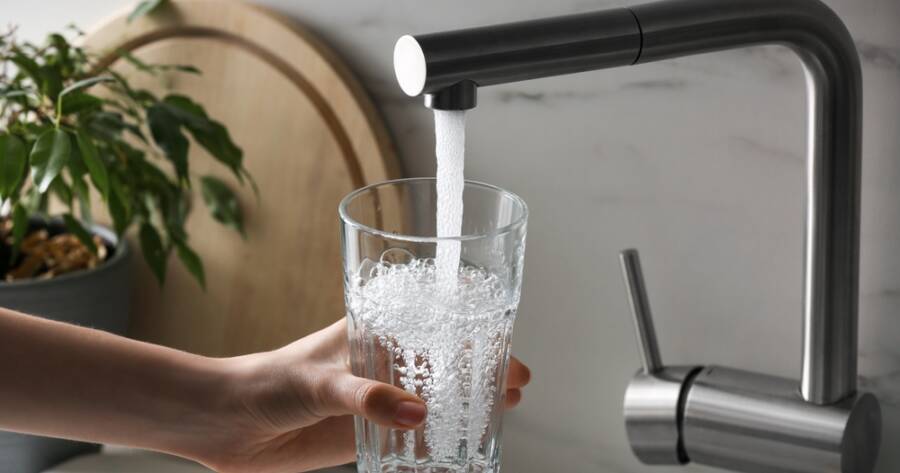Water powers almost everything the body does, from regulating temperature to delivering nutrients and cushioning joints. Even mild dehydration can leave you feeling foggy, fatigued, or irritable without fully understanding why. When your hydration levels dip, so does your energy, focus, and overall well-being. Staying hydrated isn’t just about quenching thirst; it’s about keeping every cell in your body working efficiently, especially during warmer months or more active days.
The Vital Role Water Plays in Your Health
Water does more than just fill your cup—it keeps your body functioning at its best. Every system, including digestion, circulation, and temperature control, relies on adequate fluid intake. Even your skin benefits from good hydration, helping it appear more vibrant and resilient. For those trying to boost energy, improve focus, or support heart health, water is an often-overlooked ally.
Staying hydrated also supports metabolism and nutrient absorption. Without enough water, your kidneys and liver can’t efficiently filter waste, and digestion slows down. While skipping a glass here and there may not seem serious, chronic dehydration can lead to long-term strain on organs and increase the risk of headaches, constipation, and even kidney stones. Drinking water consistently throughout the day supports long-term wellness on multiple fronts.
How Much Water Do You Really Need?
The old rule of eight glasses a day works as a basic guideline, but hydration needs vary by person. Factors like age, weight, activity level, climate, and even diet influence how much water your body requires. On average, men need about 15.5 cups (3.7 liters) and women need about 11.5 cups (2.7 liters) of fluids per day—including water from food and beverages.
Pay attention to your body’s signals. Thirst, dry mouth, dark urine, fatigue, and dizziness can all be signs you need more fluids. Certain conditions, like fever or exercise, increase fluid loss and demand more replenishment. Rather than chugging water all at once, aim to sip consistently throughout the day to support steady hydration levels.
Signs You Might Be Dehydrated Without Knowing It
Dehydration doesn’t always show up as obvious thirst. In fact, by the time you feel thirsty, your body may already be running low on fluids. Subtle signs include headaches, dry skin, difficulty concentrating, or feeling sluggish after light activity. Some people experience mood swings, increased cravings, or trouble sleeping due to low hydration.
Older adults and young children are especially vulnerable because their bodies are less efficient at signaling thirst. Medications, certain health conditions, and even caffeine or alcohol intake can also interfere with hydration levels. Recognizing the less-obvious symptoms of dehydration is key to preventing more serious issues and maintaining daily energy and focus.
Why Hydration Matters More During Heat and Exercise
Sweating isn’t the only way the body loses water, but it’s one of the fastest. During hot weather or physical activity, your fluid needs rise significantly. When you’re dehydrated, your body struggles to cool itself, raising the risk of heat exhaustion or heatstroke. Even light exercise in warm conditions can lead to noticeable fluid loss that needs to be replenished quickly.
Hydration also plays a direct role in physical performance. Muscles require water to contract efficiently and maintain endurance. Without it, you may experience cramps, fatigue, or decreased coordination. Rehydrating before, during, and after activity supports circulation, helps regulate temperature, and shortens recovery time. It’s one of the simplest ways to protect your performance and well-being.
Hydration Beyond the Water Bottle
Drinking water is the gold standard—but it’s not the only way to stay hydrated. Many fruits and vegetables, like watermelon, cucumbers, strawberries, oranges, and celery, have high water content and contribute to your daily intake. Smoothies, soups, herbal teas, and even milk can all support hydration while offering additional nutrients.
For those who find plain water boring, infuse it with citrus slices, mint, cucumber, or berries to make it more appealing. Electrolyte drinks can be helpful during intense activity or illness, but should be used in moderation due to added sugars or sodium. The key is variety—building hydration habits that feel satisfying and easy to maintain throughout the day.
Small Sips, Big Impact
Hydration doesn’t have to feel like a chore. It’s a small habit with powerful results, supporting your energy, focus, mood, and long-term health. Whether you’re sipping water, enjoying a juicy fruit, or starting your day with a hydrating smoothie, staying ahead of dehydration can change how you feel and function. Listening to your body and finding what works for you makes it easier to stay consistent, no matter the season.

